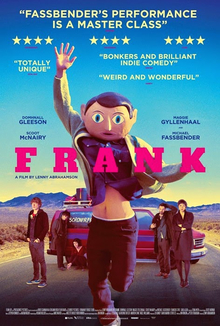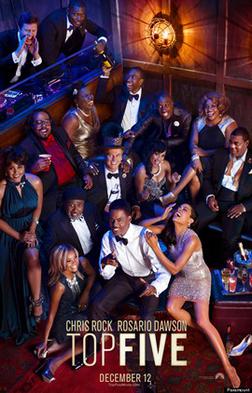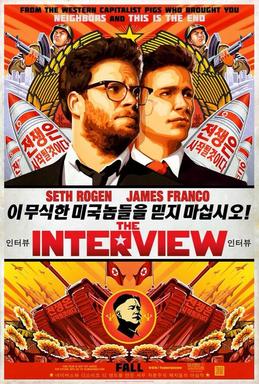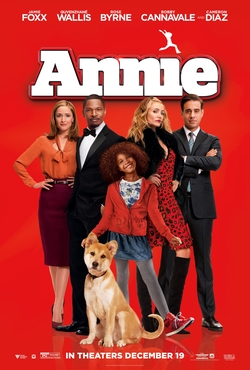Well, it's almost February of 2015 and, now that I have finally caught up on all the movies I wanted to see, it's time for me to do my year-end list. 2014 was a crazy year for me and looks like 2015 could be just as crazy, but I'm happy to tell you that KenonCinema is celebrating its five year anniversary this year. It's been a wild ride and while my blogging has been more sporadic in the past year, I don't plan on slowing down anytime soon. I hope I'm still doing this in 2020!
So, back to the list. This was incredibly difficult to put together. Seriously. Perhaps the hardest year-end list I had to do on this blog. What I decided to do this year is to expand this to 20 films instead of 15 or 10. It was way too hard to just do 10. Even when I expanded to 15, I was still not happy. It just had to be 20 this year. No other way around it. But, I've seen everything I wanted to see so I'm ready. I'm ready to dive into the incredible year that was 2014 and share my list with you.
So let's get on with it!
Honorable Mentions (in a lesser year, these would definitely get in the top 20) :
They Came Together, Mr. Turner, Blue Ruin, The Theory of Everything, Edge of Tomorrow, Frank, Snowpiercer, and Foxcatcher.
Most unfairly maligned movies of the year that I wish to give shout-outs to:
Godzilla (Didn't make my list, but I greatly enjoyed it.)
Noah (a wonderfully weird film, may have made the list if I saw it a 2nd time)
And now the list... for real!
20. Guardians of the Galaxy
Director: James Gunn
If not for the weak villains and a rote third act, "Guardians of the Galaxy" could have been the superhero classic we've all been waiting for. But hey, it's still an incredibly entertaining ride with a terrific cast and there are several moments within the film that genuinely thrilled me. James Gunn deserves a ton of credit for finding a way to embed his vision inside the massive machine that is the Marvel Universe. It's a superhero film with its own funky personality. I dig it.
19. A Most Wanted Man
Director: Anton Corbijn
Knowing that this was Phillip Seymour Hoffman's final starring role definitely makes "A Most Wanted Man" a much different viewing experience than normal. But it's even harder to process Hoffman's death, while watching this film, because you can clearly tell that he was still at the top of his game. His character, Gunther, carries a sadness and world-weariness to him. He's been in the espionage game for a long time now and you can feel his frustration with constantly being undermined at every turn. It all builds up to an unforgettable finale that will leave you frustrated---and that's exactly the point. "A Most Wanted Man" is a smart, well-crafted spy thriller that's not easy to swallow... for multiple reasons.
18. The LEGO Movie
Director: Phil Lord and Chris Miller
It's still amazing how directors Lord and Miller were able to make "The LEGO Movie" this good. A movie based on toys should never reach this level of excellence and yet, here we are. They didn't just create a movie that's hilarious and incredibly appealing to both kids and adults, they also made it look easy. "The LEGO Movie" has a balls-to-the-wall zaniness to it that doesn't let up throughout its entire running time, but what's even better is that this movie actually has something meaningful to say about childhood and growing up. It's hilarious, it's fun, it's silly, it's... oddly inspiring? Absolutely.
17. Dawn of the Planet of the Apes
Director: Matt Reeves
You don't start to realize how basic of a film "Rise of the Planet of the Apes" is until you start watching "Dawn." How many times do we see sequels attempt to outdo their predecessor by going "bigger" and failing miserably? Well, "Dawn" goes bigger, effortlessly succeeding the previous film by miles. "Dawn" is so wonderfully complex and richly thematic for a Hollywood blockbuster, often blurring the lines between which species is more violent and barbaric. By the time Koba charges towards the humans while riding a horse and firing a machine gun, I was in cinematic heaven. It sounds silly, and it should be silly, but goddamnit, it worked. It all worked.
16. A Most Violent Year
Director: JC Chandor
I cringe whenever I see "A Most Violent Year" get described as a gangster film. Not even close. There are gangsters in the film, sure, but they're not the focal point here. Instead, JC Chandor has crafted an engrossing story about a man in charge of an oil company, trying his best to remain clean and legit in spite of the violence and corruption that surrounds New York City circa 1981. It's both a morality tale and a critique of the American dream. What does it take to get to the top, beating out your competitors in the process? In this world, it's almost impossible unless you get your hands dirty. Or bloody. "A Most Wanted Man" is about a cautious man who tries so hard to do everything right, but he lives in a city where that's just not possible. Watching that struggle unfold is incredibly compelling to watch.
15. 22 Jump Street
Director: Phil Lord and Chris Miller
2014 really was a breakout year for Lord and Miller. With both "The LEGO Movie" and "22 Jump Street," they were given incredibly difficult tasks and still knocked each one out of the park. I'd argue "22 Jump Street" is an even tougher task given how many comedy sequels have failed in the past. But the brilliance of "22 Jump Street" is that it's actually a parody of "bad comedy sequels" and the film gets every detail right while still managing to work on its own merits. Plus, the chemistry between Jonah Hill and Channing Tatum is just undeniable. The spark they created in the first film carries over perfectly to the sequel and the film just made me laugh from beginning to end. Here's to many more Jump Street movies!... just kidding.
14. Whiplash
Director: Damien Chazelle
Generally speaking, when a movie premieres at Sundance and a bunch of buzz surrounds it, you don't expect it to have brass balls. "Whiplash" has brass balls. It features two fiery performances: one from Miles Teller, and the other is from JK Simmons. JK Simmons has been getting most the credit for the success of this film, deservedly so, but Miles Teller definitely holds his own. His character, Andrew, will stop at nothing to become the best jazz drummer he can be. Not even a car crash can stop him. Terence Fletcher (Simmons) pushes Andrew to his very limits. Together, the two establish a very, very unhealthy relationship. One that benefits and fuels Terence's ego, but could very well be ruining Andrew's life. "Whiplash" asks, what does it take to be truly great? Then turns that question onto its head.
13. Calvary
Director: John Michael McDonagh
It's downright shameful how little attention Brendan Gleeson has received for his wonderful performance as Father James in "Calvary." Gleeson has been such a great character actor for so long; he's proved his comedic chops in "In Bruges" and "The Guard," but "Calvary" shows that when it comes to drama, he can hang with the best of him. There's a sadness and a darkness to Father James that's heightened even further when his life is threatened in the beginning of the film. "Calvary" is a film about a man who tries to find a way to make amends with a world that seems to have no use for him. This is some really powerful, moving stuff.
12. Two Days, One Night
Director: Jean-Pierre and Luc Dardenne
For each of its 90 minutes, you can feel Sandra's (Marion Cotillard) struggle in "Two Days, One Night". Here is a woman who's just been through an intense bout with depression. She's healthy now, she's ready to go back to work. But her bosses have given their employers a very difficult, unfair ultimatum: get a bonus and fire Sandra, or keep Sandra and get no bonus. It's incredible how the Dardennes brothers are able to take these simple plots and make them into something so layered and profound. Sandra has to find each of her co-workers and ask them to keep her job. It's a laborious process that just gets more and more difficult as the film goes along. By the end, while Sandra doesn't get the triumph you'd expect her to get, she still manages to walk away with her dignity in tact, and you can't help but feel proud for her.
11. Locke
Director: Steven Knight
Holy shit, this film. It still blows me away just thinking about it. Eighty-four minutes of Tom Hardy driving in a car and we get a movie that's this compelling and tense. Writer/director Steven Knight sets up the situation as simply as possible, then slowly adds more and more details to this character and his situation until you realize that this is a man that's on the verge of a complete mental breakdown. He makes a choice in the beginning of the film to turn left or turn right, and it's a decision that forever changes his life. I was following the movie along pretty nicely, but it's when Ivan Locke starts looking in his rearview mirror, having imaginary conversations with his dead father, that's when I was sold on the film forever. "Locke" truly is a demented film, in all the best ways.
10. Obvious Child
Director: Gillian Robespierre
There is a warmth to "Obvious Child" that radiates even if it's shot in NYC in the middle of winter. Jenny Slate gives a breakthrough performance as Donna Stern. She showcases both comedic and dramatic ability with equal grace and it's through her performance that the film is able to come across as naturalistic even if it does have familiar romantic-comedy tropes. Donna Stern is faced with a decision that millions of women have had to face before, a decision that thousands of women are faced with everyday. So often, in movies, only one side of this story gets depicted, but "Obvious Child" boldly goes the other way. Donna will have an abortion and her life will go on. Will there be regrets? Will she always be asking "what if"? Perhaps. But this is not a decision that defines her and it's not a decision that defines this movie. The movie keeps its lo-fi romantic-comedy tone in spite of this dark subject matter, and that's why it works so wonderfully. An excellent debut from Robespierre and, as for Jenny Slate, I'm completely sold. I will see anything that she does next, she's that good in this movie.
9. The Immigrant
Director: James Gray
Marion Cotillard has one of the most cinematic faces in movies today. There's just something so striking about her face that I can't look away. I'm captivated. And she gives a captivating performance here as Ewa, who's fresh off the boat from Poland, and hopes to have a happy life with her sister in the United States. That all changes once she catches the eye of Bruno (Joaquin Phoenix). While she waits in line with her sister on Ellis Island, her sister has been diagnosed with a lung disease and Ewa's nearly deported. Bruno saves her from deportation, but it comes at a cost. Throughout the entire film, Ewa has one goal: find her sister, save her sister. She goes through a whirlwind of emotions as she's forced into prostitution, but she never loses sight of that goal. Cotillard gives one of my favorite performances of the year and she's filmed beautifully in this film, which has that same brownish hue that's reminiscent of the flashback scenes in "The Godfather Part II." That's quite the comparison, I know, but "The Immigrant" is very much its own beast altogether.
James Gray has made a little name for himself with his films. They each have a very formal, classic structure with plots that are very much straight-forward but rich in theme, character, and atmosphere. "The Immigrant" feels like a culmination of all his previous efforts. He has topped himself, without a doubt. I can't wait to see where he goes from here.
8. Gone Girl
Director: David Fincher
We get so many terrible third-rate thrillers, year after year, that when a movie like "Gone Girl" comes out, it's a real treasure. Fincher's been making top notch thrillers and dramas for over two decades now, but he's never been so devilishly funny and playful as he is with this film. My first viewing of "Gone Girl," my heart was in my throat when the twist came. Second time around was when I was really able to appreciate the thrill of it all. From the meticulously detailed police procedural of the first half to the batshit craziness of the second half, there's just so much to love and cherish about this film. At first, I was put off by the shift in tone halfway through, but I really came around when I saw it again. "Gone Girl" is really the best of both Fincher worlds. These days, no one crafts a procedural or a violent pulpy thriller the way he does, and we get both sides of him in this film. It's a marvel of craft and filmmaking and I enjoy every minute of it.
And yes, this is a funny movie. Perhaps Fincher's funniest. I've read so many people's complaints about how this film ends, but when I watched those scenes again, those are funniest scenes of the film. Darkly funny, but funny nonetheless. Rosamund Pike delivers a performance that should be getting her all the major awards, but that's not happening for some reason. Ben Affleck finally finds a role that we can all say that he's perfect for. Who knew that "smug douche who's hated by the media" would be the type of role Ben Affleck would be able to nail? Well, I guess we all did, but would you figure he'd be this entertaining to watch? Tyler Perry, Neil Patrick Harris, Carrie Coon, Kim Dickens, Patrick Fugit... it astounds me how perfectly cast this movie is.
7. Ida
Director: Pawel Pawlikowski
No film that came out in 2014 was as perfectly shot as "Ida." That's a fact. There's a reason why this little Polish film managed to steal a Best Cinematography nomination at the Oscars. The shot compositions are works of art. Everything is framed just right. "Ida" is just this little 80-minute black-and-white, quiet, unassuming little film about an aspiring nun that uncovers some dark truths about the family she comes from. Similar to "Calvary," this film deeply explores its main character's devotion to God, but in "Ida," despite how dark this movie gets at times, Ida's devotion feels comforting and life-affirming. Despite all she's learned about her background and the new experiences she has outside the nunnery, her decision to go back and become a nun somehow feels like the right one. In many ways, "Ida" is a masterwork.
6. Inherent Vice
Director: Paul Thomas Anderson
In the midst of the film's goofiness and overall drugged out haziness, it's easy to miss how "Inherent Vice" is really a mournful lamentation for the times that have passed. Doc Sportello clings onto those times desperately because that's better than facing the reality of the times. In 1970, the promise of peace, free love, fun drugs, and happiness quickly transformed into fantasy, and the transformation was swift and brutal. "Inherent Vice" attempts to uncover why this transformation took place, and it's also a hilariously confusing detective noir, featuring great scene after great scene. I can easily see myself watching this one over and over when it comes out on home video.
5. The Grand Budapest Hotel
Director: Wes Anderson
Wes Anderson has been building towards "The Grand Budapest Hotel" throughout his entire career. With each film he's made, his characters have become more specific and his worlds have become more detailed. He's gotten to the point where he has no qualms about inventing an entire country, then inventing that country's history. What makes "Grand Budapest Hotel" such a resounding success is that it marries Wes Anderson's quirky, dollhouse style with real, legitimate poignancy. Gustave H.'s gracious hospitality is something that no longer exists anywhere else, according to the film. He represents a civilized society that's long eluded this country, and the world that surrounds the Republic of Zubrowka just continues to get worse with no end in sight. Decades later, the Budapest Hotel still stands, it's a shell of its former self. Gustave's former lobby boy, Zero, has remained the owner of the hotel for all these years, clinging on to memories that are now far in the past. The movie opens and begins on present day, where the hotel has been torn down. At that point, it's just a ghost and the only remaining proof of its existence is inside a book. Wes Anderson has created another "Wes Anderson film," sure, but it's one that is so laced with meaning and has such an incredible lightness in its style, it's like a tasty confection. And oh yeah, it's pretty goddamn hilarious as well.
4. Selma
Director: Ava DuVernay
Ava DuVernay was put in an unenviable position. Her last three films were these very small, low-budget indie dramas. The buzz she received surrounding her previous film, "Middle of Nowhere," was what landed her in the director's chair of "Selma." She went from a $200,000 budget to $20 million and she was making the first theatrical film that depicted Martin Luther King, Jr. That's a tall order in of itself. Then, you consider how tired the "biopic" genre has become in the past decade, and you realize the success of this film is even more impressive.
What makes "Selma" so great? What does it do right where other biopics go wrong? Because it sticks with a specific time period in MLK's life. Instead of the film spanning 20 years, it spans a few months. The march from Selma to Montgomery was such a crucial period of King's life and, together with screenwriter Paul Webb, DuVernay nails the complexities that surrounds the racial climate of the time. Nobody was perfect. The march succeeded but not without a few casualties along the way, and in the end, there was still so much that had to be done. Much has been made about the patriotism that's present in "American Sniper," but no movie that's come out in 2014, or in the past few years, has made me more proud to be American than "Selma." This country is not perfect, far from it. But change can happen. We can get better. We can make a difference. MLK did not embark on this Selma march alone, nor was it only African-Americans that marched with him. Thousands of Americans from various different backgrounds all came down to Alabama to march with Martin Luther King, Jr. Now that's patriotic.
3. Nightcrawler
Director: Dan Gilroy
What's great about my top 3 movies of 2014, and really my top 6, is that there's really nothing like these movies. They each bring something new to the table. In the case of "Nightcrawler," comparisons have been made to "Network," but really this film is very much its own entity. Jake Gyllenhaal plays a freelance videographer that tapes crime scenes and submits the footage to news networks. Thanks to the cutthroat approach to his job, and his morally questionable ethics, Lou Bloom (Gyllenhaal) continues to rise to the top of his profession. And in turn, "Nightcrawler" becomes a searing indictment of the news media. Instead of coming off as overly didactic, however, the film takes a darkly comic approach to the subject matter and the results are thrilling. It all leads to a chaotic car chase scene that's one of the best action sequences that I've seen all year. "Nightcrawler" really delivers on every possible front imaginable, and it's exciting to watch an actor like Jake Gyllenhaal fully realize his talents and show us all a side of himself that we've never seen before. Kudos to Jake, and an extra kudos to Dan Gilroy, who penned one hell of a screenplay and has crafted one of the strongest directorial debuts since... well since his brother Tony Gilroy made "Michael Clayton" seven years ago. Man, those Gilroys are talented.
2. Under the Skin
Director: Johnathan Glaser
"Under the Skin" is a film that gives absolutely nothing away through dialogue. If you want to follow and understand this movie, you have to treat it as truly a visual medium. That's what I love about "Under the Skin." It's a purely cinematic film that's also disturbing, gripping, maddening, and sexy. Scarlett Johansson plays an alien who preys on random men, who are captivated by her beauty, and she collects their bodies for... meat? That part is left to the imagination, really. Like the film's title though, it's not about the surface of the film, it's about what lies underneath. "Under the Skin" is an examination and critique of the male gaze; it's about how it feels to be preyed as a woman, and it's about taking that power back. "Under the Skin" is an art film that excels on all fronts, but not just because of its themes, it's also very compelling to watch and I'm sure it'll only become more compelling on subsequent viewings.
1. Boyhood
Director: Richard Linklater
So here we are. Yes, isn't this predictable? How many times has Boyhood been #1 on lists like these? So much so that it's actually received quite a bit of backlash over the past few weeks. Look, it's not Boyhood's fault that it's received this much attention. Linklater filmed the movie over the course of 12 years. That was shocking to people when the movie premiered at Sundance last year, but now people recite that fact in a sarcastic manner.
Nobody has done this before. Have people thought about doing it before? Sure, but they didn't and Linklater did. "Boyhood" has so much more going on than its gimmick. It has a story. The word "boyhood" has thrown some people off, but this film is just as much about Mason as it is about his mother, sister, and father. It's about family. It's about how a single mother managed to complete her education while simultaneously raising two children. It's about a father who was not mature enough to raise kids when he had Mason and Samantha, but over the course of time, he eventually does grow up and becomes the father that Mason's mother always wanted him to be. It's just unfortunate that his transformation happened too late.
And screw it, I identified with this film, I really did. It spoke to me in ways no other film ever has. It's not a direct mirror of my life and I am quite different than Mason, but there's an emotional truth to "Boyhood" that I very much identified with, and there are moments in the film that feel as if Richard Linklater was peaking into my life.
But "Boyhood" doesn't only work if you identify with the film, it's not a film that's saying "this is what everyone's childhood was like." That's not the case at all. Obviously, not every child grew up with divorced parents, or had just one sister, or grew up in Texas. To latch onto those surface details is to completely miss the point. "Boyhood" is about how time eludes all of us. It's about all the events that occur while we grow up, big or little, and how those events wind up defining us and make us who we are. It's a film that marvels at the passage of time and attempts to figure out the purpose behind all of it. And what's scary is the possibility that there's absolutely no purpose to this at all. That we grow up from children to adults, but we're really always children, deep down inside. Why do we become "adults"? What's the point of this crazy life anyway? Boyhood has these questions, but it makes no attempts to answer them because they are unanswerable questions. Still, they are worth asking, they're worth pondering about. And I will be thinking about "Boyhood" for a long, long time.



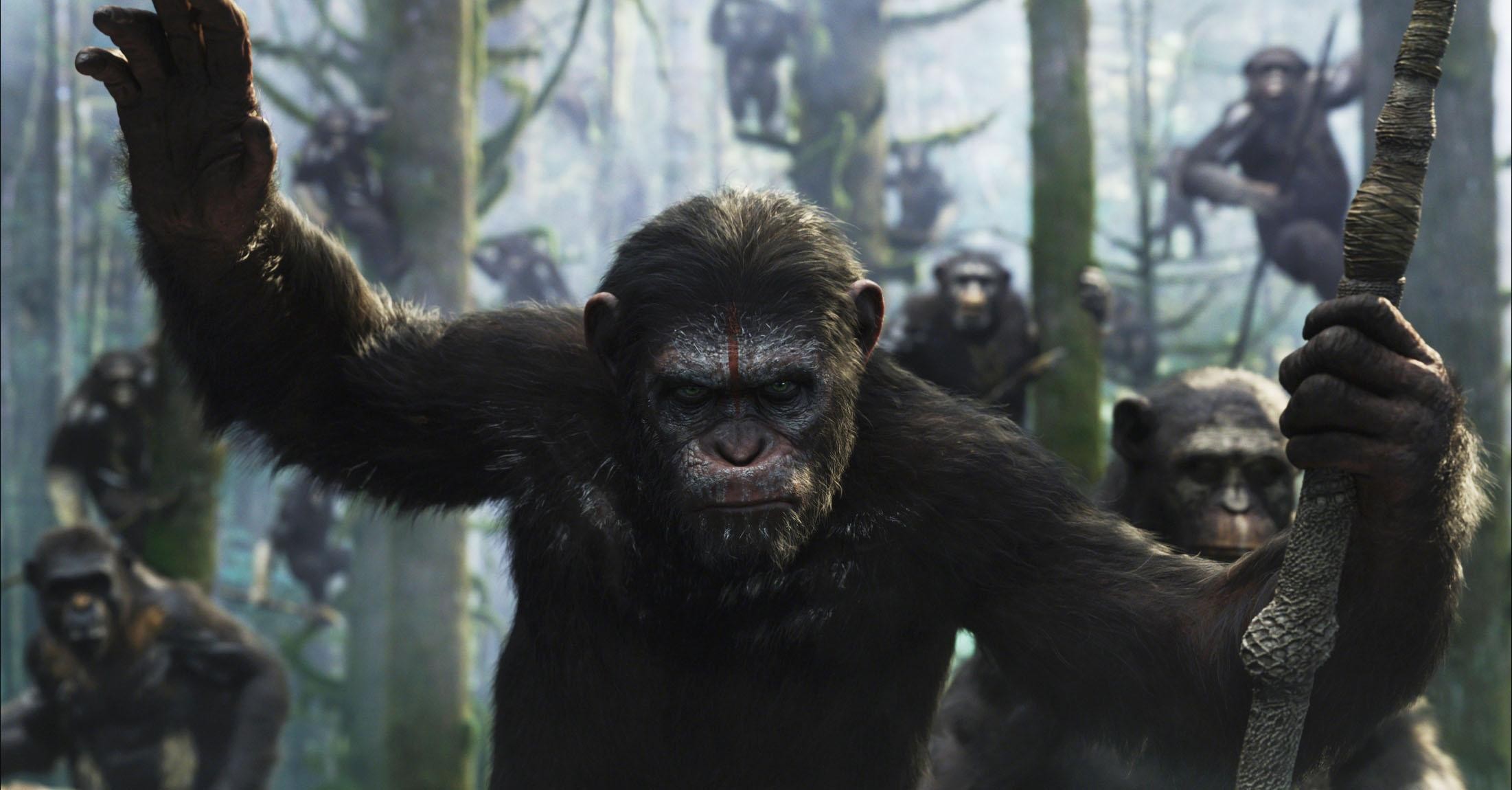




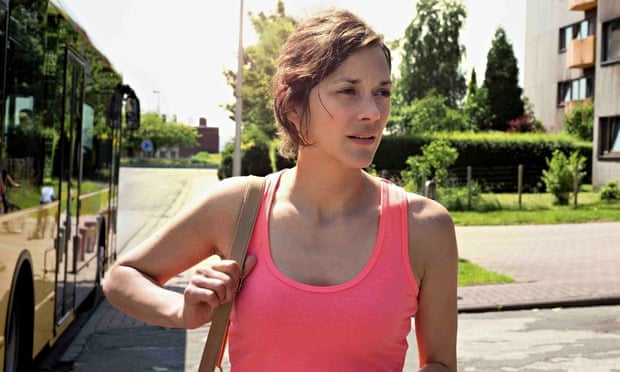
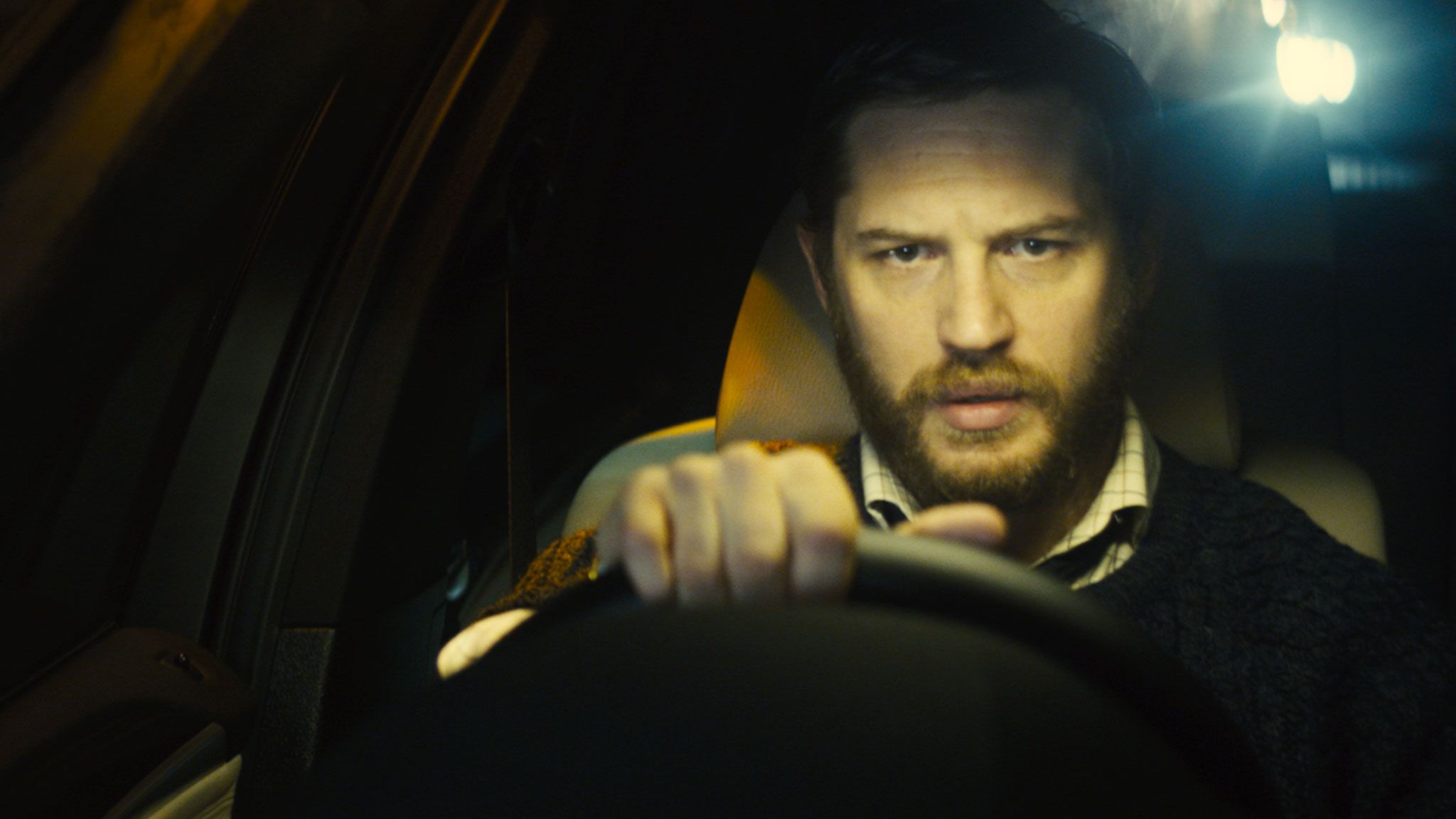


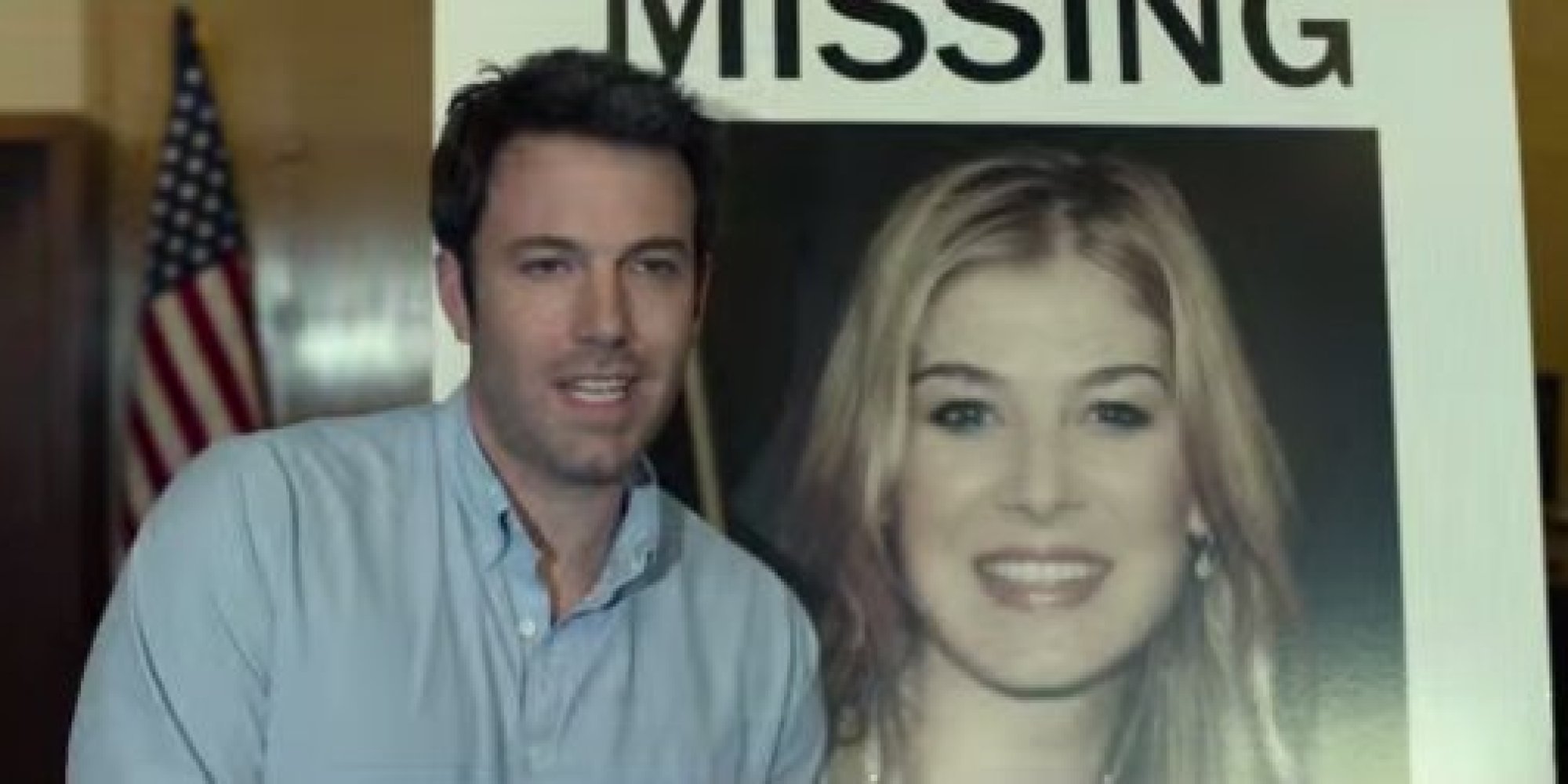











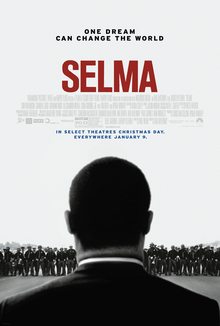

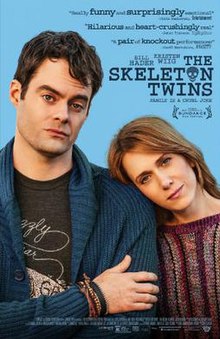
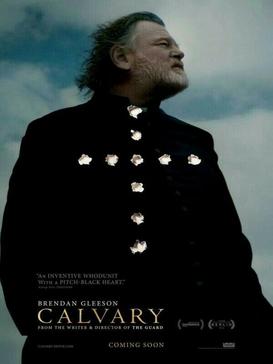
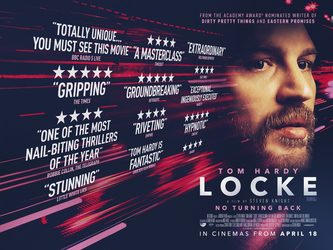
.jpg/220px-Ida_(2013_film).jpg)
